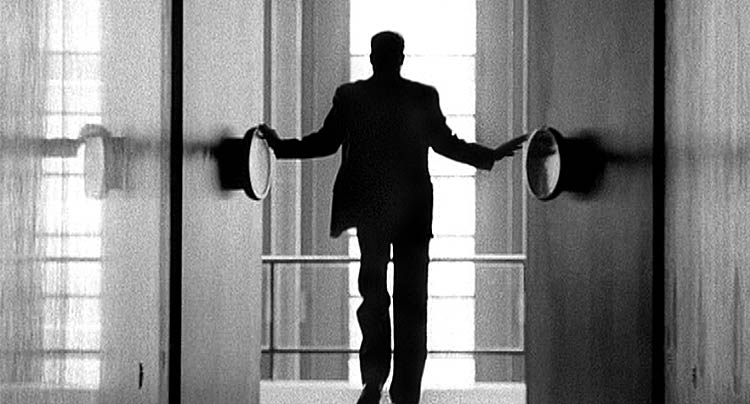
The behind-the-scenes battle on genocide and warmongers gets its due in this moving documentary.

The behind-the-scenes battle on genocide and warmongers gets its due in this moving documentary.
Director Edet Belzberg ambitiously tackles the topic of genocide in her latest documentary Watchers of the Sky. With subject matter so inherently vast in size, and a depressing amount of examples to pick from the past and present, it would be difficult to even find where to begin. Belzberg decides to start her film with the word itself, and the man who coined it. Raphael Lemkin, a Polish lawyer, created the word in the 1940s, spending his life tirelessly fighting to prevent another genocide from occurring. Belzberg profiles Lemkin’s life and career, giving him a deserving tribute for his contributions to human rights, and observes four people around the world following in Lemkin’s footsteps today. Belzberg creates a terrific example of documentary filmmaking, passing on a hopeful message by looking at those persistently fighting what looks like the impossible.
Watchers of the Sky takes its inspiration from Samantha Power’s book A Problem from Hell: America and the Age of Genocide. Power, currently serving as the US Ambassador to the United Nations, acts as the film’s guide. She primarily narrates Lemkin’s story, along with explaining examples of mass exterminations over the 20th and 21st centuries, from the Armenian genocide to recent situations like Darfur and Syria. Power tells the story of Soghomon Tehlirian, an Armenian man who watched his family get brutally massacred by Ottoman soldiers. He survived, and years later he assassinated an Ottoman Interior Minister for his part in orchestrating the deaths of millions. Tehlirian was tried for the murder, and Lemkin acknowledged the absurdity of the situation: “Why is the killing of a million a lesser crime than the killing of an individual?”
Lemkin’s life goal was to ensure that genocide would be considered a crime, and that those responsible would have to face justice for their actions. After fleeing to America during World War II, and losing his entire family when they didn’t leave, Lemkin intensely lobbied the United Nations to pass the Genocide Convention. His efforts were a success, leading to the creation of the International Criminal Court. One of Belzberg’s subjects in the film is Luis Moreno Ocampo, the Chief Prosecutor of the ICC. At the time of filming, Ocampo was building a case against the president of Sudan over the massacres in Darfur.

If Power’s purpose is to give information and context, and Ocampo’s to show Lemkin’s theories put into practice, then UN worker Emmanuel Uwurukundo presents a perspective from the front lines. Uwurukundo shines a light on the refugee problem that inevitably happens during acts of mass murder. He oversees camps holding thousands of people fleeing from Sudan to neighboring country Chad, but new obstacles seem to present themselves with each day. At one point he states that he, and the other UN workers, are close to getting pulled out of the area, leaving the refugees with no one to protect them. The last subject, Ben Ferencz, was a prosecutor at the Nuremberg trials. Today he’s the closest thing to Lemkin, spending his days lobbying UN members to declare war-making as a crime against humanity. Watching Ferencz walk around the United Nations, handing out Hershey’s Kisses to delegates, serves as a reminder of how doing the right thing isn’t reason enough for those in power.
All four subjects, like Lemkin, have their own experiences with genocide. At 22-years-old, Power hopped on a plane to Kosovo to former Yugoslavia to report on mass killings from leaders like Ratko Mladić; Ocampo prosecuted members of the military dictatorship in his home country of Argentina for their war crimes; Ferencz helped liberate concentration camps, getting a first-hand look at the horrors of the Holocaust; and Uwurukundo, a Rwandan, lost his entire family in his country’s 1994 genocide. Belzberg introduces each individual story with ease, letting her subjects explain in their own words. Learning their backstories showcases the strength of each individual’s character, as well as the way all of them refuse to succumb to intense resistance from larger interests.
Editors Jenny Golden and Karen Sim weave together Lemkin’s story, the subjects’ profiles, the historical content and Belzberg’s other strands into a tight, cohesive movie. With most of the film relying on Lemkin’s work, animations showing off archival footage and excerpts of Lemkin’s writings. The animated segments flow perfectly with the content, complementing the film’s graceful tone. The way the film smoothly transitions from live-action to animation, from today’s struggles to Lemkin’s past, shows how much of Lemkin’s experiences, including what he fought against, remain tragically relevant to this day.
Lemkin died at 59, broke and without any notoriety (less than a dozen people showed up to his funeral). Belzberg repeatedly displays disheartening information about the lack of compassion from others, especially the international community (Power relates a quote from an US official during the Rwandan genocide saying they determined “each American life is worth about 80,000 Rwandan lives”). But Belzberg provides a glimmer of hope amidst the surrounding negativity. In the final scene, Ferencz explains the meaning of the film’s title. It’s a truly moving moment that beautifully sums up why people like Ferencz keep fighting. They may not see results in their lifetime, but their efforts will help clear the way for a brighter future.